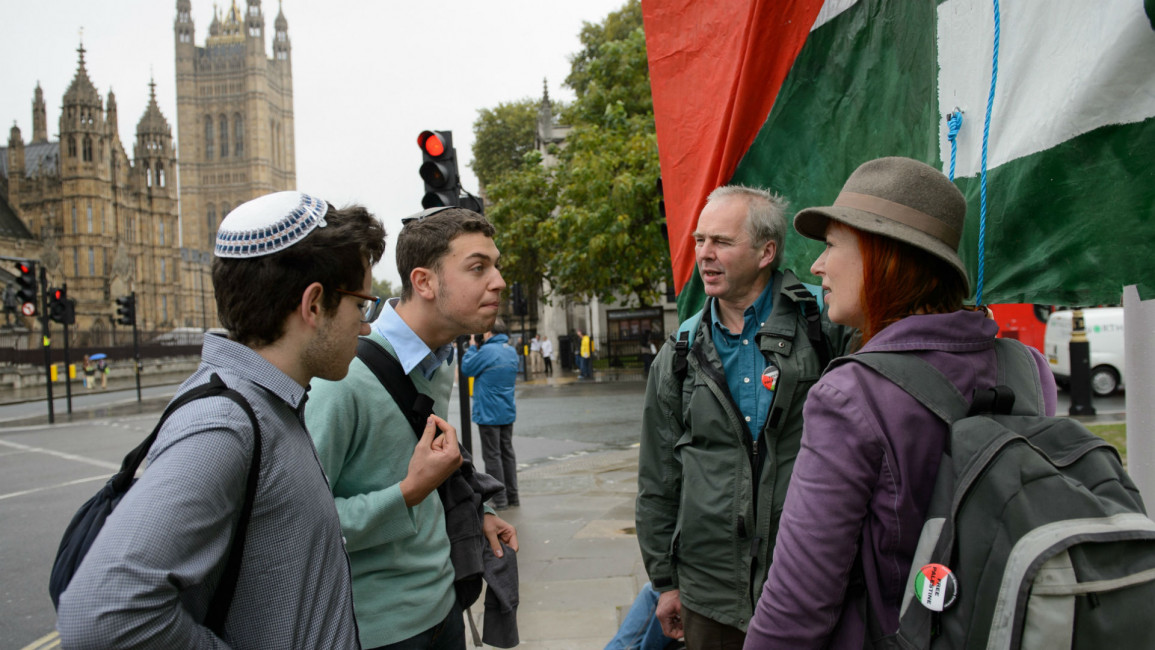
Southampton feels the wrath of the Israel lobby
Put the words "Israel" and "legitimacy" together and you are unleashing a storm which makes Hurricane Katrina seem like a mild April breeze.
So it is perhaps not surprising that the vice chancellor of Southampton University, Professor Don Nutbeam, under intense lobbying from the Board of Deputies of British Jews and other groups, cancelled a three-day conference last week at the university.
The event was billed as 'International Law and the State of Israel: Legitimacy, Responsibility and Exceptionalism'.
A brave title. Read what the organisers had to say: "[They] will engage controversial questions concerning the manner of Israel's foundation and its nature, including ongoing forced displacements of Palestinians and associated injustices."
It went on to explain that the conference will examine how international law could be deployed, expanded, or even re-imagined, "in order to achieve regional peace and reconciliation based on justice.
"The conference is intended to broaden debates and legal arguments concerning historic Palestine and the nature, role, and potentialities of international law itself," it went on to say.
Freedom of speech
The visible issue here is freedom of speech. The conference organisers had sought a wide variety of views from scholars, including Israelis, pursuing many different disciplines.
Some 900 academics signed a petition on the conference website in support of the debate.
So while 'freedom of speech' may have to balance with other freedoms, it is simply not reasonable to contend that Southampton University was organising an attack against the foundation of the State of Israel, as the Board of Deputies has claimed.
But there is another important issue: in the organisers' statement above, the words law and legal occur three times.
These are words rarely used by the UK government in the context of Israel except in relation to the illegality of settlement building, for which it has never imposed any penalties on Tel Aviv.
Again and again our government spokespersons reassure us, incredibly, that they do not 'take sides' between Israel and Palestine.
They appear unable to grasp that this utterly puerile defence is meaningless. The only 'side to take' is that of international law.
And why is the law so "scary" that this debate must be suppressed?
Well, the university thinkers seem to believe that international law can be used to achieve 'regional peace' - certainly not an aim of Netanyahu - and not only 'reconciliation' but also justice.
Justice and peace
| Control, erase a history and you can control, erase a people. |
Not many are brave enough to bind themselves to 'justice' preferring the 'peace' word. That is without the uncomfortable suggestion that a Palestinian state should be fully autonomous, viable and contiguous, with a capital in East Jerusalem.
And there is another word which goes with 'reconciliation'. It is 'truth'. If both sides are to be reconciled, both have to admit the other's narrative and the reality of the other's suffering.
And the conference wants to discuss, 'the manner of Israel's foundation and its nature'. No wonder the Board of Deputies is upset.
Some of the titles for the seminars at the university included, 'Zionist colonisation and strategies', 'Jews, Judaism and the Jewish State: Ethnic Rights and International Wrongs' and 'Gaza as a metaphor and the Right to be Human'.
I believe why so many greeted the conference with such high hopes was not just the insistence that international law is the only route to peace.
It was also blowing apart the carefully constructed Israeli narrative that paint Israelis are victims and peacemakers and Palestinians as usurpers and terrorists.
When the Israeli Knesset passed the Nakba Law in 2011, it effectively made it a crime for Israeli Arabs to commemorate the suffering of the 700,000 Palestinians who lost their homes when Israel was established.
Haneen Zoabi, a Palestinian member of the Knesset said, "This is a law to control our collective memory."
Control, erase a history and you can control, erase a people.
The organisers are determined that this conference will go ahead - in another venue if necessary.
To that end they are mounting a legal challenge against the University of Southampton for cancelling the event - which was done on the spurious grounds of the 'risks to safety and public order.'
The cancellation of the event in Southampton has nothing to do with safety, but like the Nakba Law is about control - of historical knowledge and of what and how we think.
And this battle is not one the Israeli lobby can win.
Opinions expressed in this article remain those of the author and do not necessarily reflect those of al-Araby al-Jadeed, its editorial board or staff.



